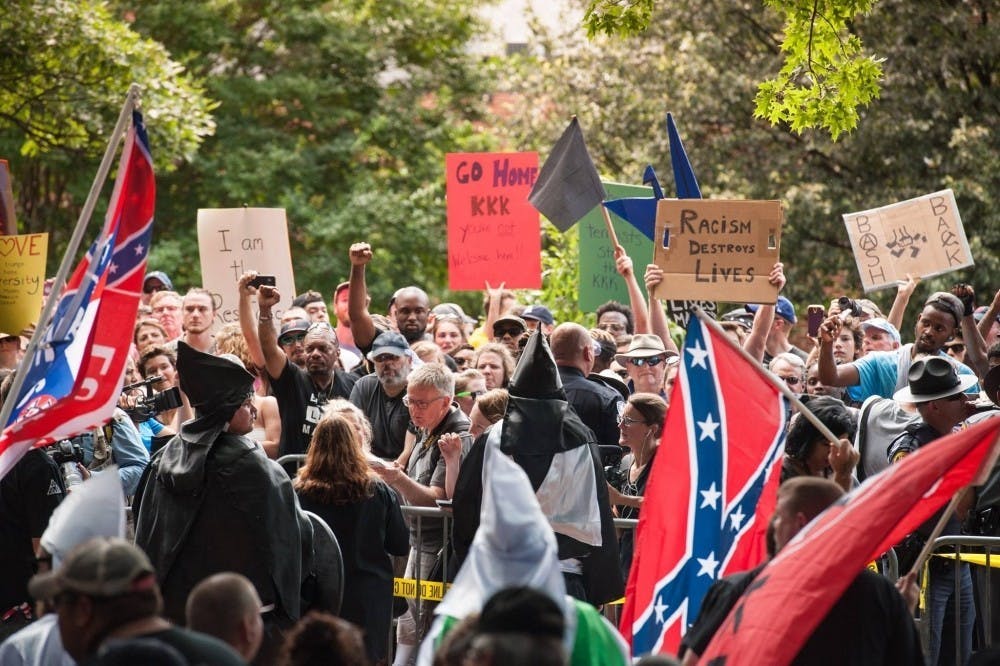The Charlottesville “Unite the Right” rally was a shock to the nation and the University community, an unapologetic and violent celebration of views formerly restricted to the political fringes and internet chat rooms. The reason for the assembly was ostensibly to protest the removal of a Robert E. Lee statue, but the real issue for the protesters was what they saw as a an attack on the white, European identity by a new multicultural society and politically correct elite.
It would be easy to blame President Donald Trump for the popularity of these views, especially given his noncommittal response to the protest. While Trump rode to victory on a tide of disaffected voters, he did not create their alienation from mainstream politicians. Rather, he tapped into an existing vein of anger, one which some attribute to identity politics driving white voters away from the Democratic Party. This theory argues that the left’s focus on minority groups and issues has encouraged some white Americans to consider themselves a separate, disadvantaged group and emphasize their white identity.
However, many dismiss labeling this movement as identity politics as the term is most often associated with leftist politics. Slate’s political correspondent wrote in a piece that this view draws a “false equivalence” between white supremacists and minority groups fighting for justice. Similarly, columnist Michelle Goldberg notes that, by jettisoning identity politics, we run the risk of ignoring the very real race and gender issues in society.
It’s true that some conservatives may be blaming identity politics in order to direct responsibility toward liberals. However, identity politics should not be dismissed as a motivating factor for the protesters. We also can’t dismiss it simply because we believe accepting that fact will interfere with other political drives. By doing so we would risk a valuable opportunity to understand what motivates these protesters and the political movement they are a part of.
The protesters in Charlottesville — extreme as they were — were just a small subset of the population that may be motivated by an attachment to white identity. Multiple researchers found that one of the strongest predictors of support for Trump was white identity level. The same research indicated that the vast majority of voters with a strong white identity aren’t the Klansmen we may imagine but a mainstream group which feels increasingly disadvantaged by society. Nor are identity politics just an issue with conservatives — following the election of Trump, Sen. Bernie Sanders, D-Vt., criticized Democrats for relying too much on appealing to diversity rather than reaching out to the working class. President Barack Obama agreed, saying “micro-targeting particular, discrete groups…Is not going to win you the broad mandate that you need.”
Of course, it’s impossible to know with certainty exactly what weight identity politics had with the protesters, and how other factors such as racism and nationalism may have created that toxic mix of emotions. But I should note that if identity politics do motivate these people, it doesn’t take away from the issues facing disadvantaged minority groups. It also doesn’t mean there is a moral equivalence between white supremacists and those fighting back against them — after all, fighting for equality isn’t the same as fighting to maintain supremacy. That being said, ignoring this possibility is a defensive reaction in the case that focusing on diversity and disadvantaged groups has pushed some white Americans to more strongly embrace their own white identity.
Alexander Mink is an Opinion columnist for The Cavalier Daily. He may be reached at opinion@cavalierdaily.com.







